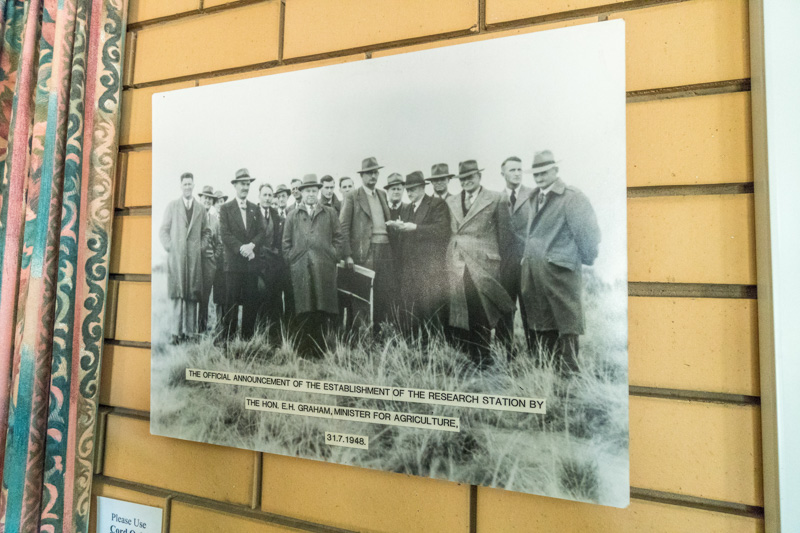
Our history
 In July 1948, the Hon. EH Graham MLA, Minister for Agriculture, announced the establishment of the Horticultural Research Station. The original station buildings were completed in 1954.
In July 1948, the Hon. EH Graham MLA, Minister for Agriculture, announced the establishment of the Horticultural Research Station. The original station buildings were completed in 1954.
Between 1962 and 1964 a packing shed, an additional machinery shed and a manager’s cottage were constructed.
The Department’s district advisory service was provided from the station following the construction of an office building in 1967. Dareton became the first site where the delivery of the Department’s services was integrated.
In the early 1980s the Community Employment Program was introduced by the Commonwealth Government. This program financed, in part, a new office and laboratory building for research staff, and a new conference room which is used for grower meetings, small workshops and seminars.
The appointment of an Irrigation Officer to the staff at Dareton Agricultural Research and Advisory Station in May 1987 allowed the Station to expand its advisory services to the community by providing a technically based pool of knowledge on irrigation hardware.
Fisheries and Forestry officers were co-located at Dareton following the merging of departments in 2004.
Citrus propagation
In 1971, the Australian Agricultural Council adopted a program to provide and maintain a source of high-quality propagation material. The program was run by the Fruit Variety Foundation (FVF) and included a number of crops including citrus. The citrus foundation planting for the FVF was established at Dareton Agricultural Research and Advisory Station in 1977, and is now held in 2 locations at the Elizabeth Macarthur Agricultural Institute, Camden and the Auscitrus property, River Road, Dareton.
The Institute had a major service function in supplying citrus budwood and seed to the Australian nursery industry. Now, about 700,000 buds are supplied annually by the independent AusCitrus organisation (Australian Citrus Propagation Association) from their own facility, to provide separation of the evaluation of new citrus genetics (a function of the NSW DPI) from the sale of buds and seeds (AusCitrus). Commercial varieties that are supplied from their scheme are of known health status, and this is regularly monitored to ensure quality of material.

